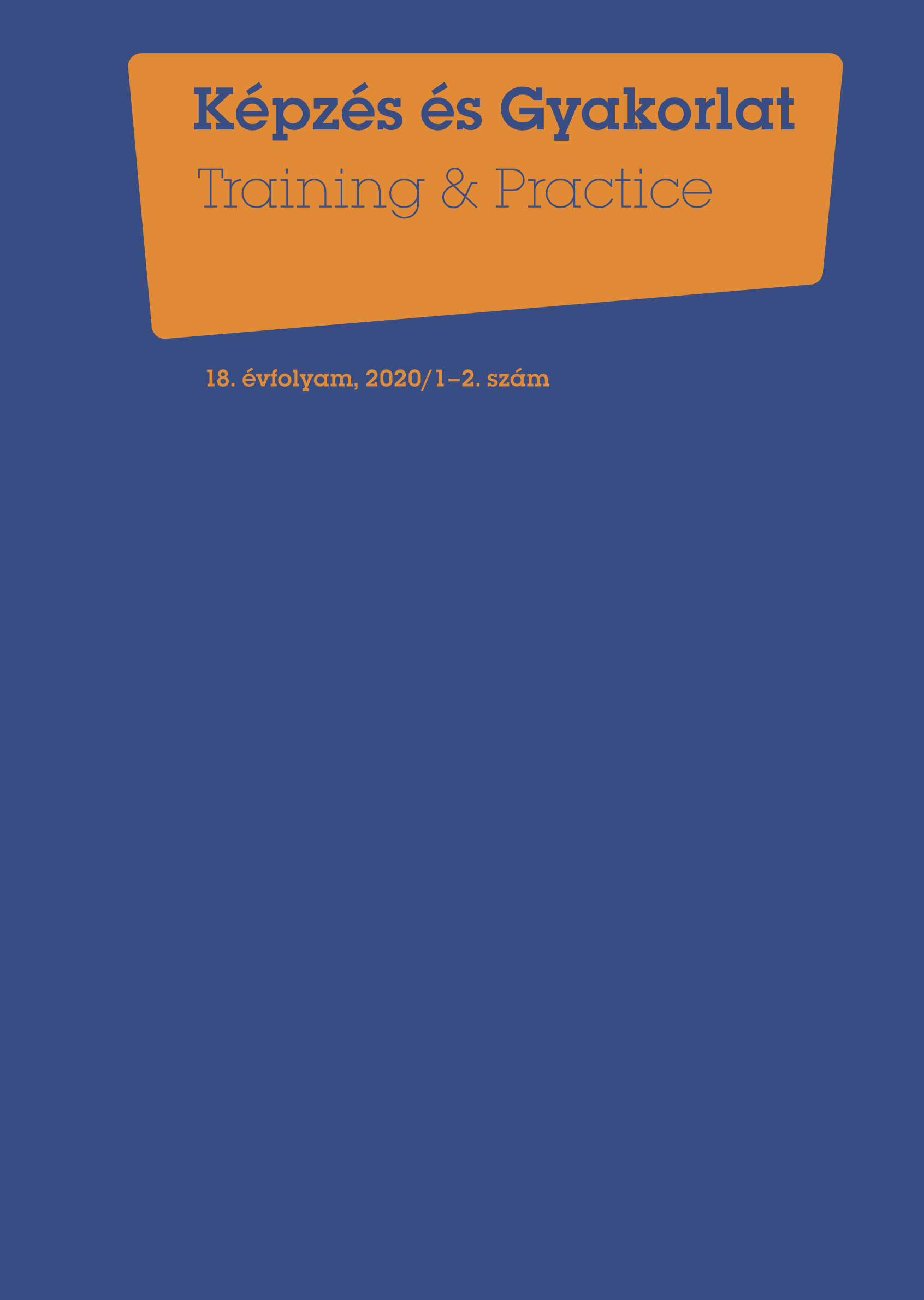Parents’ educational practices on unacceptable behaviour of preschool children
DOI:
https://doi.org/10.17165/TP.2020.1-2.10Resumen
The research on the frequency of the use of parenting practices in the situations of unacceptable behaviour of preschool children was conducted on a sample of 350 parents. The possible links between parenting practices and some parental demographic indicators were also investigated (gender, educational status, financial status, residential status, number of children in the family, number of family members). Research results show that nearly one third of parents use inadequate educational practices. Some parents’ rearing practices are characterized by the absence of a reaction to children’s unacceptable behaviour, by objecting, threatening, raising voice, abolishing privileges and corporal punishment. The financial and housing status of parents, the number of members in the family and the number of children have statistically significantly influenced the frequency of the implementation of some parenting practices. The obtained data point to the need for comprehensive and continuous support for parents in the development of parental skills.
Referencias
Baumrind, D. (1991). The influence of parenting style of adolescent competence and substance use. Journal of Early Adolescence, 11, 56-95. DOI: https://doi.org/10.1177/0272431691111004
Bellingreri, A. (2011). Pedagogia dell'attenzione. Berscia: La Scuola.
Bowlby, J. (1988). Secure Base: Clinical Applications of Attachment Theory. London: Routledge.
Braza, P., Carreras, R., Munoz, J.M., Braza, F., Azurmendi, A., Pascual-Sagastizábal, E., Cardas, J., Sánchez-Martín, J. R. (2015). Negative Maternal and Paternal Parenting Styles as Predictors of Children's Behavioral Problems: Moderating Effects of the Child's Sex. Journal of Child and Family Studies, 24(4), 847-856. DOI: https://doi.org/10.1007/s10826-013-9893-0
Contini, M. , Fabbri, M., Manuzzi, P. (2006). Non di solo cervelo. Educare alle connessioni mente-corpo-significati-contesti. Milano: Raffaello Cortina Editore.
Corominas, F. (2011). Kako odgajati volju. Split - Zagreb: Verbum - Obiteljsko obogaćivanje.
Daly, M.(ed.) (2007). Parenting in contemporary Europe - a positive approach. Strasbourg: Council of Europe Publishing.
Dishion, T.J., Stormshak, E. A., Kavanagh, K. (2012). Everyday parenting: A professional's guide to building family management skills. Champaign: Research Press.
Ekerim, M., Selcuk, B. (2017). Longitudinal Predictors of Vocabulary Knowledge in Turkish Children: The Role of Maternal Warmth, Inductive Reasoning, and Children's Inhibitory Control. Early Education and Development, 29( 3): 324-341. DOI: https://doi.org/10.1080/10409289.2017.1407607
Francis P. P., (2016). Amoris laetitia. Post-synodal Apostolic Exhortation on Love in the Family. [online] forrás (Retrieved 29.07.2019).
Gaudiosi, J. (2005). Child Maltreatment 2005. US Department of Health and Human Sources. http://www.acf.dhhs.gov/programs/cb/pubs/cm05/index.htm/ (Retrieved 2.12.2018.) Gordon, T. (1996). Škola roditeljske djelotvornosti. Zagreb: Poduzetništvo Jakić.
Gordon, T. (2000). Parent Effectiviness Training: The Proven Program for Raising Responsible Children. New York: Three Rivers Press.
Iruka, I.U., De Marco. A., Garrett-Peters, P. (2018). Profiles of academic/socioemotional competence: Associations with parenting, home, child care, and neighborhood. Journal of Applied Developmental Psychology, 54: 1-11. DOI: https://doi.org/10.1016/j.appdev.2017.11.002
Isaacs, D. (2012). Izgrađivanje karaktera. Split: Verbum.
Jull, J. (2008). Život u obitelji: Najvažnije vrijednosti u zajedničkom životu i odgoju djece. Zagreb: Naklada Pelago.
Jurčević Lozančić, A., Kunert, A. (2015). Obrazovanje roditelja i roditeljska pedagoška kompetencija, teorijski i praktički izazovi. Metodički obzori,10(2), 39-48. DOI: https://doi.org/10.32728/mo.10.2.2015.03
Knox, M. (2010). On Hitting Children: A Review of Corporal Punishment in the United States. Journal of Pediatric Health Care, 24(2), 103-107. DOI: https://doi.org/10.1016/j.pedhc.2009.03.001
Koerner, A.F., Cvancara, K.E. (2002). The influence of conformity orientation on communication patterns in family conversation. The Journal of Family Communication, 2, 133-152. DOI: https://doi.org/10.1207/S15327698JFC0203_2
Macario, L. (2003). Educare. Guidare a vivere nella verità e nell'amore. Roma: Logos Press.
Maleš, D. (2012). Obitelj i obiteljski odgoj u suvremenim uvjetima. Dijete, vrtić, obitelj, 67: 13-15.
Mariani, V. - Meloni, E. (2004). Costruire l'uomo. Percorsi di progettazione personale e comunitaria. Bologna: Dehoniane.
Mesman, J, Minter, T., Angnged, A, Cissé, I., Salali, G. D., Bamberg Migliano, A. (2017). Universality Without Uniformity: A Culturally Inclusive Approach to Sensitive Responsiveness in Infant Caregiving. Child Development, 89(3), 837-850. DOI: https://doi.org/10.1111/cdev.12795
Missildine, H. W. (2008). Il bambino che sei stato. Gardolo (TN): Erikson.
Moed, A., Gershoff, E., Eisenberg, N., Hofer, C., Losoya, S., Spinrad, T., Liew, J. (2016). Parent-child negative emotion reciprocity and children's school success: An emotion‐ attention process model. Social Development, 26(3), 560-574. DOI: https://doi.org/10.1111/sode.12217
Raboteg, Z., Pećnik, N. (2006). Bračni status, financijske poteškoće i socijalna podrška kao odrednice roditeljske depresivnosti i odgojnih postupaka. Društvena istraživanja, 15(6), 961-985.
Rinaldi, C. M., Howe, N. (2012). Mothers' and fathers' parenting styles and associations with toddlers' externalizing, internalizing, and adaptive behaviors. Early Childhood Research Quaterly, 27(2), 266-273. DOI: https://doi.org/10.1016/j.ecresq.2011.08.001
Smith, A. B., Gollop, M., Taylor, N. J., Marshall, K. (2005). The discipline and guidance of children: A summary of research. Dunedin and Wellington: Children's Issues Centre and Office of the Commissioner for Children.
Tagliabue, A. (2008). La scoperta delle emozioni. Gardolo (TN): Erikson.
Wade, M., Jenkins, J.M., Venkadasalam,V. P., Binnoon-Erez, N., Ganea, P. A. (2018). The role of maternal responsiveness and linguistic input in pre-academic skill development: A longitudinal analysis of pathways. Cognitive Development, 45, 125-140. DOI: https://doi.org/10.1016/j.cogdev.2018.01.005
Wood, J. (1996). What is social comparison and how should we study it? Personality and Social Psychology Bulletin, 22, 520-537. DOI: https://doi.org/10.1177/0146167296225009
Zakon o zaštiti od nasilja u obitelji. (2009). Narodne novine, 137.
Zeytinoglu, S., Calkins, S., Leerkes, E. M. (2018). Maternal emotional support but not cognitive support during problem-solving predicts increases in cognitive flexibility in early childhood. International Journal of Behavioral Development, 43(1), 12-23. DOI: https://doi.org/10.1177/0165025418757706
Zloković, J., Nenadić-Bilan, D. (2012). Neke odrednice zadovoljstva u obnašanju roditeljske uloge u odnosu na odabir odgojnih postupaka. Magistra Iadertina, 61(1-2), 191-212.
Descargas
Publicado
Número
Sección
Licencia
Derechos de autor 2020 Diana Nenadić-Bilan, Marijana Mohorić

Esta obra está bajo una licencia internacional Creative Commons Atribución-NoComercial-SinDerivadas 4.0.








